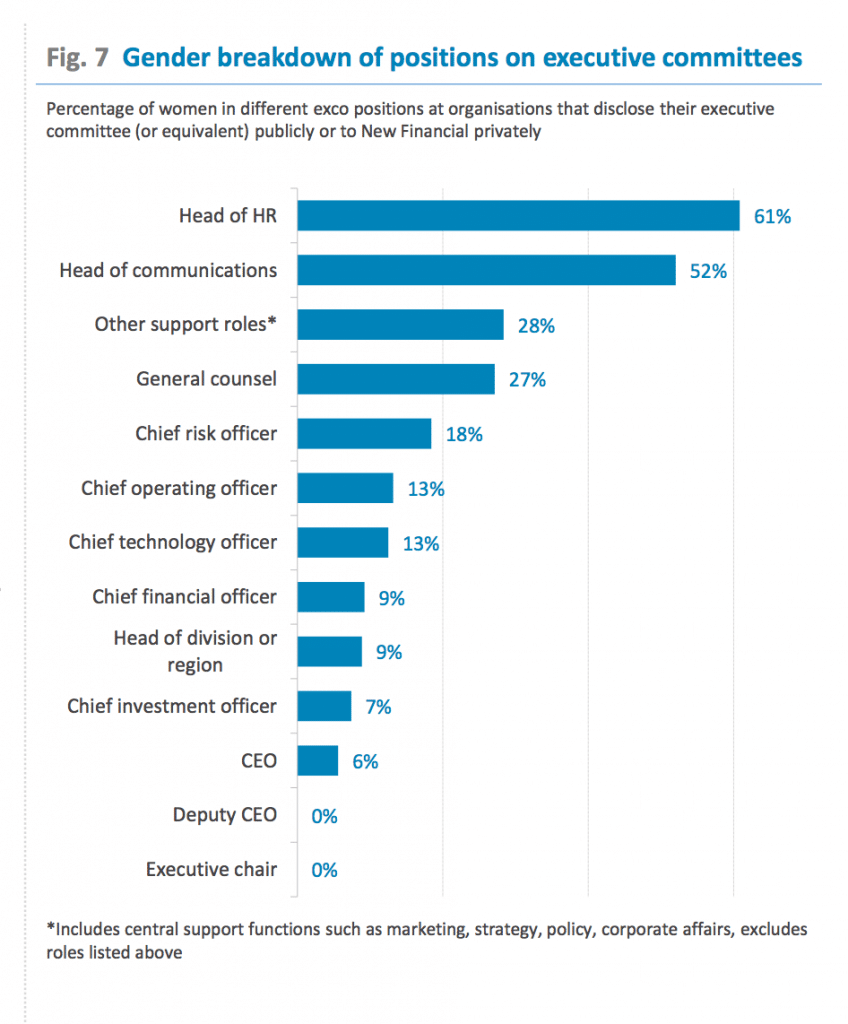The United Kingdom's HM Treasury has just announced that its ‘Women in Finance Charter’ - a pledge for gender balance across the finance industry – has already 72 companies on board its initiative, in support of the progression of women into senior roles in financial services.
By focusing on the roles that women hold in the executive pipeline and mid-tier levels within companies, the charter aims to help ensure gender diversity as a balanced workforce can be good for business, customers, workplace culture, and has other positive attributes, as explained in an update from the HM Treasury.
Approximately 60% of people working in financial services are women across 20 global markets, however this figure sadly falls dramatically to 19% when looking at senior level positions.
Transparency and accountability
Each firm that commits to the charter will need to set its own targets as businesses can vary, yet firms are required to report publicly on any progress they make to deliver against these targets. By making this data transparent, signatories help set the stage for accountability and a basis for future change for gender equality in the workforce.
Furthermore, firms that take the pledge to support the charter are committing to have a member of their senior executive team be responsible and accountable for gender diversity and inclusion, as internal targets for gender diversity are set by a firm’s senior management.
Equal Pay and Roles
In addition, firms signing the charter agree on making sure that the pay of their senior executive team - whether bonus pay or other executive remuneration - reflects delivery against the internal targets on gender diversity.
The more than 70 entities that have already signed the charter reflect some of the largest financial services companies in the UK, including banks and investment firms and other multinational companies, as well as emerging fintech companies, regulators, trade associations, and stock exchanges.
Not only does it create a fair working environment but it’s also good for business which in turn, is good for our members and customers.
Women in Finance
Commenting in a statement regarding the charter, a spokesperson from fintech startup Circle said: "As a young fast-growing FinTech company, innovation is vital but so too is our passion for people. We want the right people for the job, whatever their gender. Approximately 60% of people working in financial services are women across 20 global markets, however this figure sadly falls dramatically to 19% when looking at senior level positions."
The Circle spokesperson added: "The team at Circle are proud to champion gender equality in the financial workplace, and are committed to ensuring that women are appropriately represented. We are delighted to participate in the UK government’s ‘Women in Finance’ Charter to help drive awareness and showcase both the importance and advantages of women occupying senior managerial roles in the financial service."

Helen Dean
Source: NEST
Commenting in a statement, Helen Dean, CEO of NEST - an auto enrollment pension provider - said regarding the charter: "The Women in Finance Charter is a very important initiative and I am pleased that NEST will be playing its part in helping create a gender balance, at all levels, across financial services."
Mrs. Dean added: "The decision to sign the Charter was an easy one for NEST. That’s not to say we entered into it lightly but it felt obvious to me and the NEST leadership team that we have a responsibility to promote equality and diversity here at NEST. Not only does it create a fair working environment but it’s also good for business which in turn, is good for our members and customers.”
Industry support
An example of some of the names on the list include, Aberdeen Asset Management, Affinity Capital, Atom Bank plc, Aviva plc, BlackRock, BNY Mellon, Circle, Credit Suisse, Deutsche Bank AG, Fidelity International UK, and Lloyds Banking Group, among other prominent and emerging names.
In addition, agencies such as the Financial Conduct Authority (FCA) appeared on the list alongside industry trade associations across finance, among others.
London Stock Exchange Group, CEO Xavier Rolet said regarding the initiative: “At London Stock Exchange Group we understand a broad, diverse team is essential to deliver the best possible outcomes for our customers. We are not just signing this charter to signal our ongoing commitment to equality in the work place but also to actively challenge both ourselves and others in the financial sector to keep addressing these issues.”
A report by NewFinancial last month, by Yasmine Chinwala, noted that while women do tend to hold positions on executive committees, these roles tend to be support-focused (seen as costs centers) instead of roles linked to revenues (seen as profit centers). The report found that while nearly two-thirds (61%) of HR heads on executive committees are women, only 9% were heads of a region or division, and barely 10% representing the C-suite executive level.

Women in UK Financial Services 2016
Source: NewFinancial


















